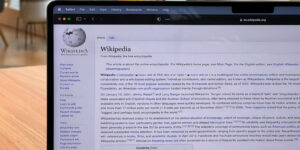Is Pope Francis Endorsing Universalism?
Is Pope Francis endorsing heresy?
It might look that way from the eye-catching headlines this week that made it appear everyone was bound for heaven—“even atheists!”—thanks to Jesus’ death on the cross.
The passage that prompted the reports came from Francis’ brief homily at the informal morning Mass that he celebrates in the chapel at the Vatican guesthouse.
Last week, Francis said that as human beings created in the image of God, everyone has a “duty to do good.”
“The Lord has redeemed all of us, all of us, with the Blood of Christ: all of us, not just Catholics. Everyone! ‘Father, the atheists?’ Even the atheists,” he said, answering his own query. “Everyone! And this blood makes us children of God of the first class! We are created children in the likeness of God and the blood of Christ has redeemed us all!”
Cue the jaw dropping and head scratching. Atheists were pleasantly surprised, conservative Catholics were dazed and confused, and the pope’s comments raced around the Internet; for a while they were the second-most shared piece on Reddit.
So was Francis preaching a form of “universalism”? That is the unorthodox teaching that says, essentially, that all faiths are equal and all are going to heaven, especially if you are nice to people here on earth. It’s also a heresy that Francis’ predecessor, Benedict XVI, spent a career quashing every time he thought he thought he spied a hint of it in some theologian’s writings.
But the short answer to the question is easy: No. Francis was only affirming the doctrine that Christ redeemed the whole world. Whether people accept that belief is another matter.
In fact, popes going back to Leo XIII in 1891 and up through John Paul II–not to mention authoritative texts from the official Catholic Catechism and the Second Vatican Council–have said the exact same thing Francis did.
The Rev. Thomas Rosica, a Vatican spokesman, confirmed as much in an explanatory note the next day that reiterated these basic points. Even rejecting Christianity, Rosica noted, does not automatically consign someone to hell because Catholics believe God can save anyone, Christian or atheist or a member of another faith – though always through Jesus.
Also, Francis was speaking off-the-cuff, as he likes to do, and not in precise formulations that have magisterial, much less infallible, authority.
In fact, the wide attention given to Francis’ remarks may have as much to do with the popular appeal of his approachable, plain-spoken style and his insistence that Catholics not only help the poor but that they also join hands in respect and humility with others, be they believers or atheists.
The retired pope, Benedict XVI, also made an outreach to atheists a signature issue, and he also preached about making common cause with nonbelievers for the sake of the common good. Yet to the wider public he apparently was neither sufficiently kindly nor convincing to make it sound original.
Still, Francis has managed to rattle more than a few cages, especially among Catholic conservatives who were sending “panicky emails” trying to figure out what is going on in Rome.
Indeed, in the two months since Francis was elected, his broadsides against “savage capitalism” (a remark he made the day before his homily on redemption) have repeatedly unsettled economic conservatives, just as his preference for a low-key pontifical style and simple liturgies have appalled many high-church traditionalists.
Francis’ most recent remarks also tapped into a passionate debate in church circles over a new translation of the Mass that was ordered by Benedict XVI. One of the most problematic aspects of the new translation concerns a crucial Eucharistic prayer in which the priest used to say that Jesus’ blood was “shed for you and for all.” Now the Latin phrase has been translated to read “for you and for many.”
The tweak from “all” to “many” may sound like inside baseball for church geeks, but it actually has profound implications for how Catholics view the nature of salvation, the mission of Jesus and the church’s role in the world.
“Do church leaders want to signal that the grace of Christ is available only to the regular, traditional churchgoer? Is their intention to leave out the rest?” the Rev. Paul Philibert asked in a 2011 essay in America magazine. “More and more it looks as if the covert message beneath the written text is one of effective exclusion rather than antecedent inclusion of all humanity in God’s will for salvation.”
Despite stiff and ongoing resistance from bishops across the English-speaking world, Benedict’s Vatican pushed them to adopt this reformulation as a new orthodoxy. Now Francis seems to have come down on the more expansive side of the debate, giving conservative Catholics.




























































